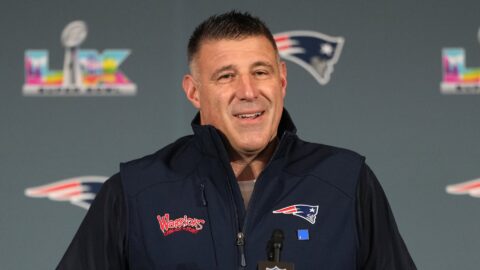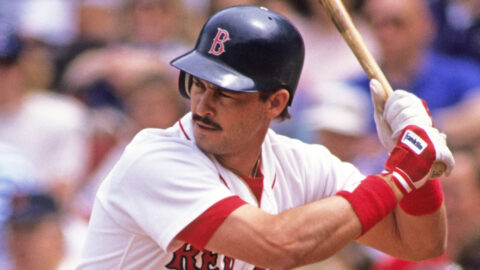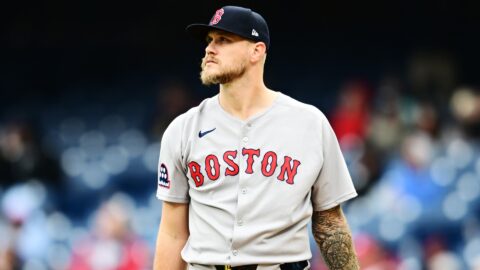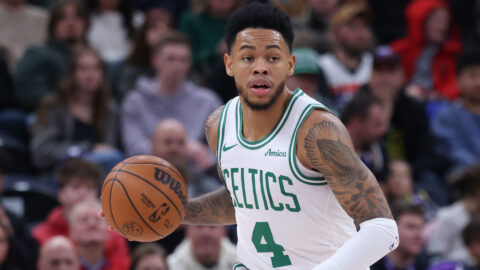Even when you're working with a payroll over $120 million, there's something to be said for playing a little Moneyball.
The name of the game is market inefficiency. It's about examining your competitors, finding out what commodities are overvalued and which are overlooked, and finding the bargain that no one expected, the diamond in the rough. The great minds are the ones who find value where no one else could.
In Oakland, it's what made Billy Beane the subject of a bestselling book in 2003. In Boston, it's what makes Theo Epstein the subtle genius he is today.
The market inefficiency du jour is the "down year." Simple concept: A player has one bad season, and most every GM in baseball writes him off as damaged goods. Not the Red Sox, though — they see a star ready to bounce back.
That first baseman that gave up on the major leagues in 2002, moving to Japan only to see Theo drag him back to the States? That was Kevin Millar. That washed-up closer that bounced around from Baltimore to St. Louis to Philadelphia in 2001 and '02 before catching on with the Red Sox? Mike Timlin. The aging, .236-hitting third baseman with eight homers in 2005? He wasn't much at the time, but he turned out to be Mike Lowell.
The Red Sox make these moves all the time. They're cheap, they're risk averse, and if you're lucky, they pay off. One little downturn doesn't mean much in the grand scheme of things — it's the whole career that counts.
So let's consider the case of Rich Harden.
To the Athletics and Cubs, his first two employers, Harden has been a bargain. He's made just $16 million total over the past five years, and he boasts a career ERA of 3.39 and an average of better than a strikeout per inning. When healthy, he's one of the best young arms in the game. He's been around for seemingly forever, but he's just 27. His prime years are on the horizon.
That "when healthy" is a big caveat to some, though. He hasn't made 30 starts in a season since 2004, and he has had nagging arm problems throughout his career that end up sidelining him pretty much every year. And even when healthy, his 2009 wasn't pristine — he had an ERA over 4 for the first time since 2006 and gave up 23 home runs in 26 starts.
But these are the Red Sox. And in Boston, the secret is to look at the whole career, not just the contract year.
Holistically, it's hard to complain about Harden's first seven seasons. That career ERA, especially considering that he came up in the hard-hitting American League, is remarkable. In 2008, he was one of the best pitchers in baseball — his ERA was 2.07 and he had 181 strikeouts to just 61 walks. He was 26 then, and we all saw a perennial All-Star just waiting to happen.
Harden still is that pitcher. And he's working to show his potential more consistently. Word has gotten out this fall about a new conditioning problem he's working on in Chicago, created by Cubs pitching coach Larry Rothschild, athletic trainer Mark O'Neal and strength coach Tim Buss. According to Harden, progress is being made.
"They had a good understanding of what we needed to do," he told MLB.com earlier this month, "and I had a better understanding of what I needed to do on a personal level."
Of course, the Cubs are working with Harden because they want to bring him back. And Harden isn't opposed to the idea, either: "I'd like to be here next year," he told the Web site, "but we'll see what happens."
Clearly, the Cubs have the inside track on keeping the young righty around. But the Red Sox shouldn't give up easily.
The Boston Herald's Sean McAdam has reported that "a number of executives and scouts in the game" see the Sox as major players for Harden. And with good reason — he's their kind of guy.
The Red Sox will be able to offer Harden a low-risk contract with a small base salary and incentives for staying healthy and making his starts. If it doesn't work out, the Sox can cut their losses and move on — but if Harden turns out to be an All-Star in the American League, Theo looks like a genius. It's worth a shot.
If Harden stays healthy, he's one of the best pitchers in the game. The Red Sox should kick the tires on him — they've got very little to lose.



